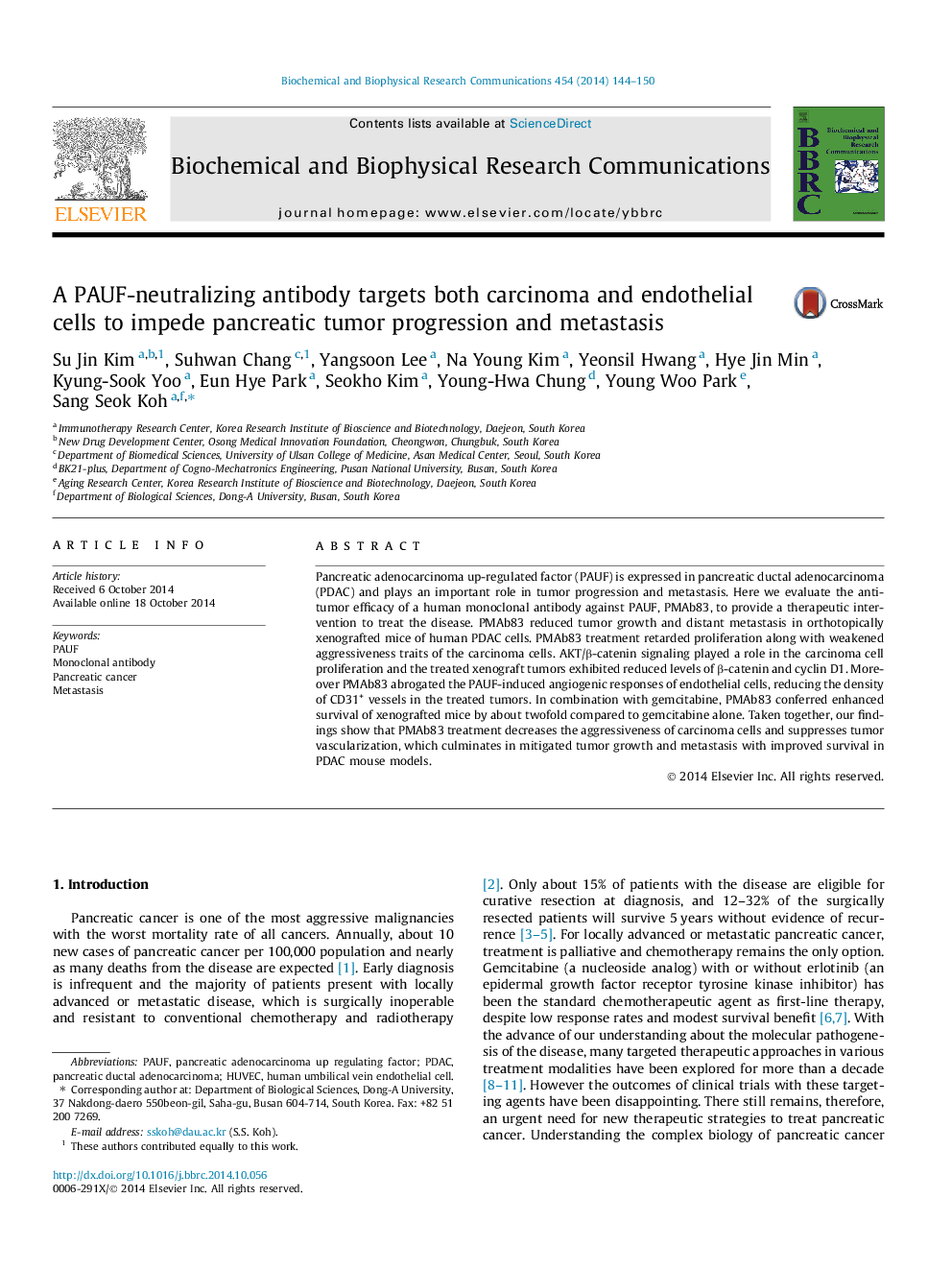| Article ID | Journal | Published Year | Pages | File Type |
|---|---|---|---|---|
| 10753452 | Biochemical and Biophysical Research Communications | 2014 | 7 Pages |
Abstract
Pancreatic adenocarcinoma up-regulated factor (PAUF) is expressed in pancreatic ductal adenocarcinoma (PDAC) and plays an important role in tumor progression and metastasis. Here we evaluate the anti-tumor efficacy of a human monoclonal antibody against PAUF, PMAb83, to provide a therapeutic intervention to treat the disease. PMAb83 reduced tumor growth and distant metastasis in orthotopically xenografted mice of human PDAC cells. PMAb83 treatment retarded proliferation along with weakened aggressiveness traits of the carcinoma cells. AKT/β-catenin signaling played a role in the carcinoma cell proliferation and the treated xenograft tumors exhibited reduced levels of β-catenin and cyclin D1. Moreover PMAb83 abrogated the PAUF-induced angiogenic responses of endothelial cells, reducing the density of CD31+ vessels in the treated tumors. In combination with gemcitabine, PMAb83 conferred enhanced survival of xenografted mice by about twofold compared to gemcitabine alone. Taken together, our findings show that PMAb83 treatment decreases the aggressiveness of carcinoma cells and suppresses tumor vascularization, which culminates in mitigated tumor growth and metastasis with improved survival in PDAC mouse models.
Keywords
Related Topics
Life Sciences
Biochemistry, Genetics and Molecular Biology
Biochemistry
Authors
Su Jin Kim, Suhwan Chang, Yangsoon Lee, Na Young Kim, Yeonsil Hwang, Hye Jin Min, Kyung-Sook Yoo, Eun Hye Park, Seokho Kim, Young-Hwa Chung, Young Woo Park, Sang Seok Koh,
